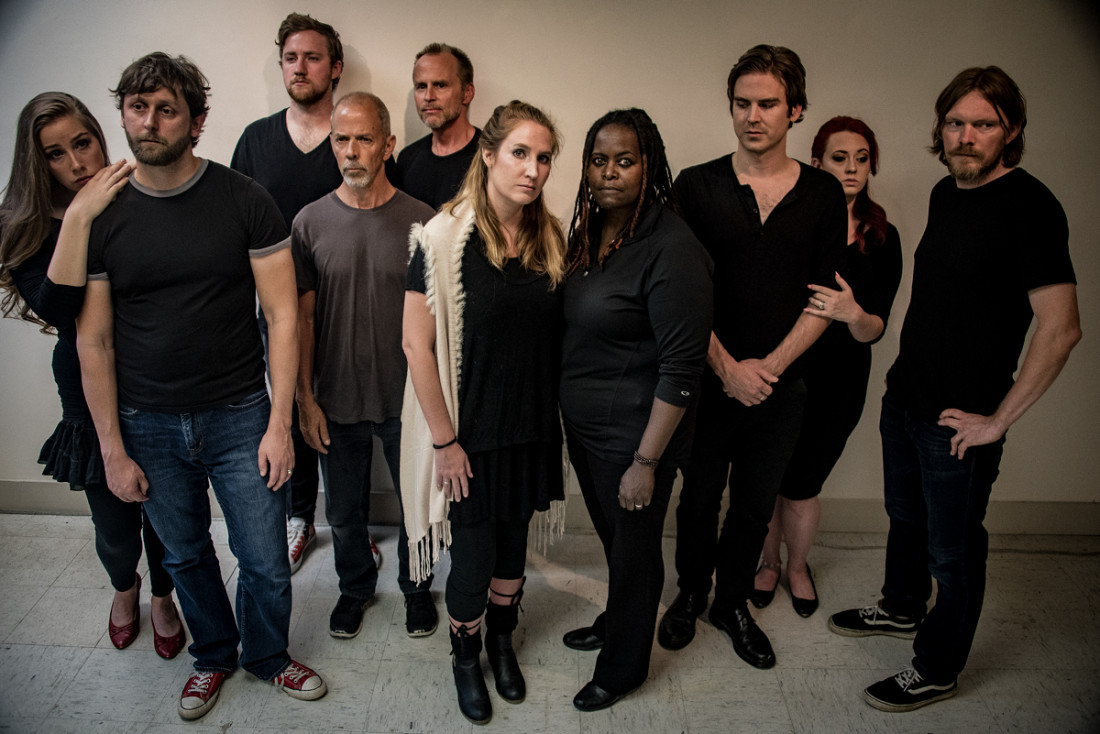As written, the entire collected works of William Shakespeare offer exactly three roles for actors of color. There’s the villainous Aaron from Titus Andronicus, the unnamed Prince of Morocco from The Merchant of Venice and Othello, the tragic hero from the play of the same name. For women of color, that total drops to zero — unless you’re willing to see things a bit differently.
That’s the attitude Steph Hickling Beckman is taking toward Shakespeare’s so-called Moor of Venice. The female artistic director of Different Strokes! Performing Arts Collective plays the male title role in an upcoming production of Othello, which debuts in partnership with the Montford Park Players at the BeBe Theatre on Friday, Nov. 3.
“Othello is the only [Shakespearean character] I could possibly relate to, in any way. He’s representative as a person of color who has gained prominence,” says Hickling Beckman. “Regardless of the success he has achieved, there’s an Iago standing behind him, waiting to bring him down a few pegs because of the color of his skin and ill-conceived notions of inferiority and supremacy.”
The plot of the work has led many scholars to view Othello as Shakespeare’s play about racism. As the curtain rises, Othello, a black Moorish general in the army of Venice, has married Desdemona, the white daughter of a Venetian senator. One of Othello’s soldiers, Iago, is angry that the general passed him over for a military promotion and so uses the tensions of that mixed-race marriage to sow distrust among Othello’s circle. After Iago’s careful scheming, Othello becomes wrongly convinced that Desdemona has committed adultery, strangles her in their bed and kills himself on realizing the truth.
But Hickling Beckman emphasizes that gender biases also play a major role in driving the story. “All of the women in Othello are subservient in one way or another — they’re silenced, brushed off or redirected whenever they venture into their men’s affairs,” she says. “Had Othello been willing to treat Desdemona as an equal and actually had a two-way conversation about the things Iago had told him, he would have known what Iago was up to.”
The female-female pairing that results from casting a woman as Othello gives viewers a new starting point to explore these biases in the play. Scott Keel, artistic director of the Montford Park Players and director of the production, explains that he wanted to provide audiences with a choice in how they see the gender of the title role. “Steph’s not going to be in a beard or taped down in any way to hide the fact that she’s a woman, but I also didn’t adjust the pronouns in the text at all,” says Keel. “That lens can exist for the people who want to see it.”
Hickling Beckman hopes that the gender ambiguity sparks a deeper conversation about the work. “Iago’s jealousy of Othello certainly takes on new layers when Othello is perceived as female,” she says. “We also strongly suspect that how the audience sees the couple, as straight or gay, will dictate their reaction to Othello’s violence against Desdemona.” This intersectionality of racial and homosexual prejudice places Shakespeare’s 400-year-old play in the context of contemporary social justice.
Othello is the first collaboration between Different Strokes! and the Montford Park Players, although Hickling Beckman and Keel have long been friends. The pairing offers greater exposure for both theater companies, particularly as MPP seeks to expand its offerings beyond the traditional and attract more local patrons. As with the theater’s recent production of Peter Pan, Othello aims to reach people who may not have otherwise come to see a classical Shakespeare performance.
Keel says that the process of joining companies for the play has gone very smoothly from an artistic standpoint; the biggest challenge has been determining what group handles which technical aspects of the production. Different Strokes! plotted many of the stage design choices, while one of MPP’s largest contributions was scenic painting. “Our set is essentially a painted map on the floor,” says Keel. “It’s not a map of Italy; it’s completely original, which helps to establish to people that this isn’t Venice as we know it.”
The result is a spartan stage, lacking furniture for its characters to hide behind. “Everything in the play happens very publicly, even though there are so many secrets and conversations that you’d think should be private,” Keel says. Iago’s duplicity and prejudice are on display for all to see, but still lead to Othello’s demise.
Hickling Beckman adds that this openness speaks volumes to how racism and sexism operate in the world beyond the stage. “The behavior is much less apparent, generally less understood and unfortunately less acknowledged by those it does not directly affect,” she says. “The fact that Iago’s microaggressions are never challenged by any other character demonstrates how [biases] bleed into everyday interactions, especially when unchecked.”
WHAT: William Shakespeare’s Othello by Different Strokes! and Montford Park Players
WHERE: BeBe Theatre, 20 Commerce St.
WHEN: Friday, Nov. 3, through Saturday, Nov. 18, Fridays and Saturdays at 7:30 p.m., Sundays at 2:30 p.m. Free with reservations at montfordparkplayers.org




Before you comment
The comments section is here to provide a platform for civil dialogue on the issues we face together as a local community. Xpress is committed to offering this platform for all voices, but when the tone of the discussion gets nasty or strays off topic, we believe many people choose not to participate. Xpress editors are determined to moderate comments to ensure a constructive interchange is maintained. All comments judged not to be in keeping with the spirit of civil discourse will be removed and repeat violators will be banned. See here for our terms of service. Thank you for being part of this effort to promote respectful discussion.